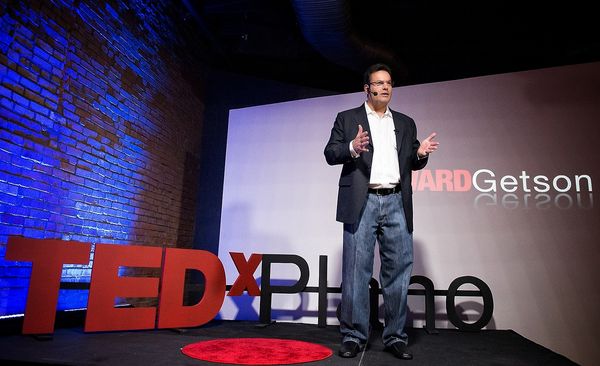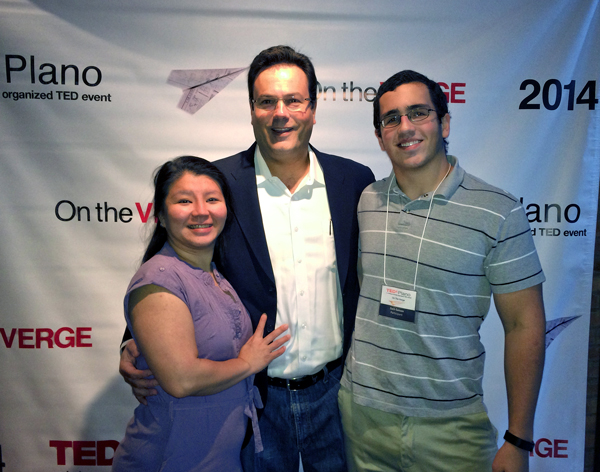To use an athletic analogy, a normal speech and a TED Talk are totally different events (like a sprint vs the decathlon). It takes a surprisingly different set of skills and type of preparation to perform well.
I've given hundreds of presentations, and don't normally stress about them. I did for this one.
In most of my talks, there is very little "set in stone" to memorize. I tend to have a main topic (or theme), and each slide serves like a module … and I think, talk, interact, and improvise throughout the framework.
This works well for me because I tend to think in anecdotes that branch out from the main theme. That may be a great skill to have, but it's not one that helps you write a good TED Talk.
Why? Because, in contrast, a TED Talk is really about "one idea worth sharing".
In many respects, it's much harder to write and deliver a good 10 minutes about one idea, than it is to prepare to talk about a much broader topic for one hour.
The TEDx committee created a sense of formality with stringent standards and deadlines. My guess is that, during the planning and rehearsal process, they wanted uncomfortable speakers to provoke better speeches.
As a result, I prepared (and threw away) four separate talks before coming up with something that felt right and flowed properly.
Here are some bullet points that highlight lessons learned.
- One of my early listeners coached me that the trick to a good TED Talk is that it is not about what you say, but rather about what they feel. In other words, for a TED Talk, evaluate the story and the particular wording choices based on the emotions they elicit in listeners.
- One of the best ways to get a point across emotionally is to tell a story. And, if I couldn't remember it easily, it probably wasn't a story.
- The speech committee and several early listeners strongly encouraged me to go with as few slides as possible. I started with 15 … I got it down to six … and I ended up with two (relying, instead, on the performance and connection rather than images and words).
- They encouraged me to take almost everything about business (in general) or my business (specifically) out of the talk.
- In fact, they kept encouraging me to make it simpler and more basic on almost every level. "Why did you say that?" I would answer; and they would say "Then say that."
I didn't realize how hard it was to make something simple.
The video should be ready next week.
EDIT: Here it is:



